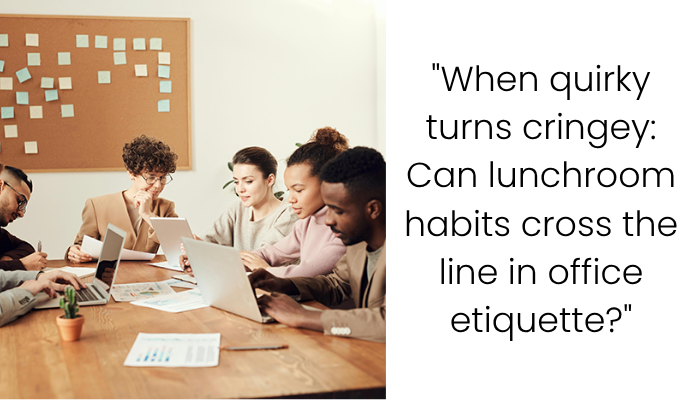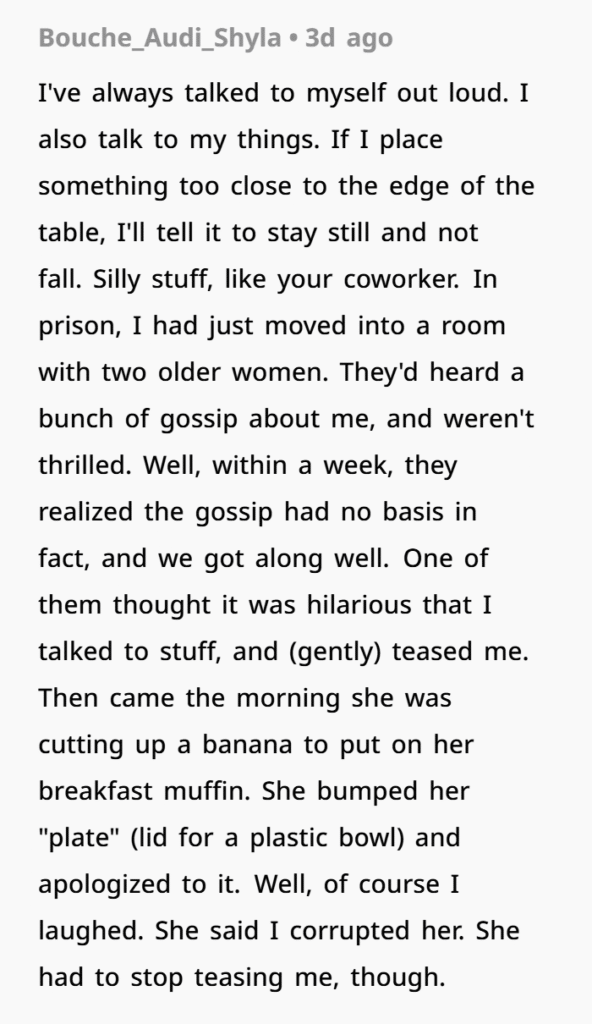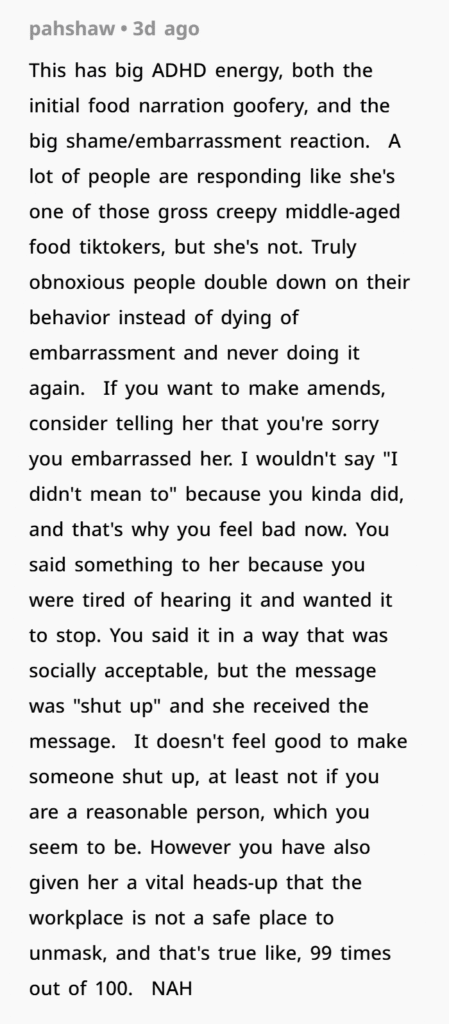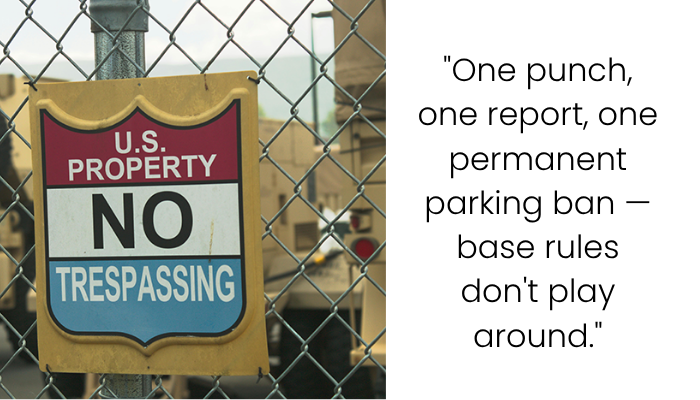AITA for Telling My Coworker Her Quirky Lunch Habit Is Really Distracting?

In a small office of about fifteen employees, a lunchtime ritual began to wear thin. What started as an amusing quirk—one coworker’s habit of audibly narrating every bite of her meal—soon morphed into a daily distraction. Her colorful commentary, from “Mmm, spicy little pickle today” to reassuring a sandwich of its sad fate, was done aloud and directed at no one in particular. At first, this behavior seemed harmless, even entertaining, but over time, the novelty wore off for the original poster (OP).
Advertisement – Continue Reading Below
Frustrated and distracted, OP finally commented on the behavior during a recent lunch break, asking their coworker—albeit lightly—if she realized she talks to her food daily. The comment, while not intended to shame, clearly embarrassed the coworker. Since then, she has gone quiet during lunches, and several others in the office have accused OP of killing the vibe and policing harmless eccentricity. Now, OP is torn: Were they out of line for saying something? Or is there a limit to how much quirkiness one should tolerate in shared spaces?
The thing about quirks is that they often add flavor by turning bland routines into something a bit more human, but sometimes, what starts as charming can become too much

The author noticed that their colleague at work had a habit of narrating everything she ate out loud during lunch breaks





In workplace dynamics, the balance between individual expression and collective comfort can be incredibly delicate. While most offices tolerate a certain level of personal flair—quirky desk decorations, unique fashion choices, or unusual lunch foods—auditory habits often cross into more contentious territory. That’s because sound impacts everyone within earshot, especially in smaller, open-plan environments where personal space is already limited.
Advertisement – Continue Reading Below

Distraction in the Workplace: A Real Concern
Studies show that auditory distractions are among the top productivity killers in office settings. According to research published in the Journal of Environmental Psychology, background conversations and unpredictable sounds significantly impair employees’ ability to concentrate on tasks. In a team of fifteen, even a single person’s repeated vocalizations during a shared lunch break can start to feel intrusive over time, especially if others don’t opt-in to the behavior.
The Line Between Quirky and Inappropriate
Advertisement – Continue Reading Below
What makes this scenario unique is that the coworker’s habit is not disruptive in a traditionally aggressive sense—it’s whimsical, even childlike—but still constant and unsolicited. It blurs the line between personal expression and unintentional performance. Psychologists refer to this as “ambient eccentricity”—where one individual’s behaviors become a fixture of the environment, not by request but by repetition. While one person’s self-expression may delight some, it can alienate others who value quieter or more neutral spaces.
Could HR Get Involved? Possibly, But Unlikely
While this situation may not warrant a formal HR complaint, it does touch on boundaries in shared professional environments. In some cases, repeated unwanted behavior—especially if it impacts others’ well-being—can fall under “micro-disruptive conduct.” However, tone and intent matter. Because OP approached the subject casually and not during a formal complaint, it would likely be viewed as a peer-to-peer conflict rather than a violation of workplace policy.
Advertisement – Continue Reading Below

Related Cases and Cultural Framing
Consider the widely circulated story from a few years ago of an employee who was asked by management to stop eating loudly in the break room. The reason? Coworkers found it disruptive—not for volume but for the ritualistic way the food was consumed and described. It sparked a debate on Reddit and workplace forums alike: Is being different a right, or is shared space a reason to rein it in?
Moreover, modern office culture increasingly promotes inclusivity and “bringing your whole self to work.” But that’s often misunderstood as a license to behave as one would at home. In reality, workplace norms require a level of self-awareness, especially in communal settings like break rooms.
Advertisement – Continue Reading Below
Netizens expressed understanding of the author’s frustration, but also stated that the colleague wasn’t harming anyone and shouldn’t have been called out publicly











